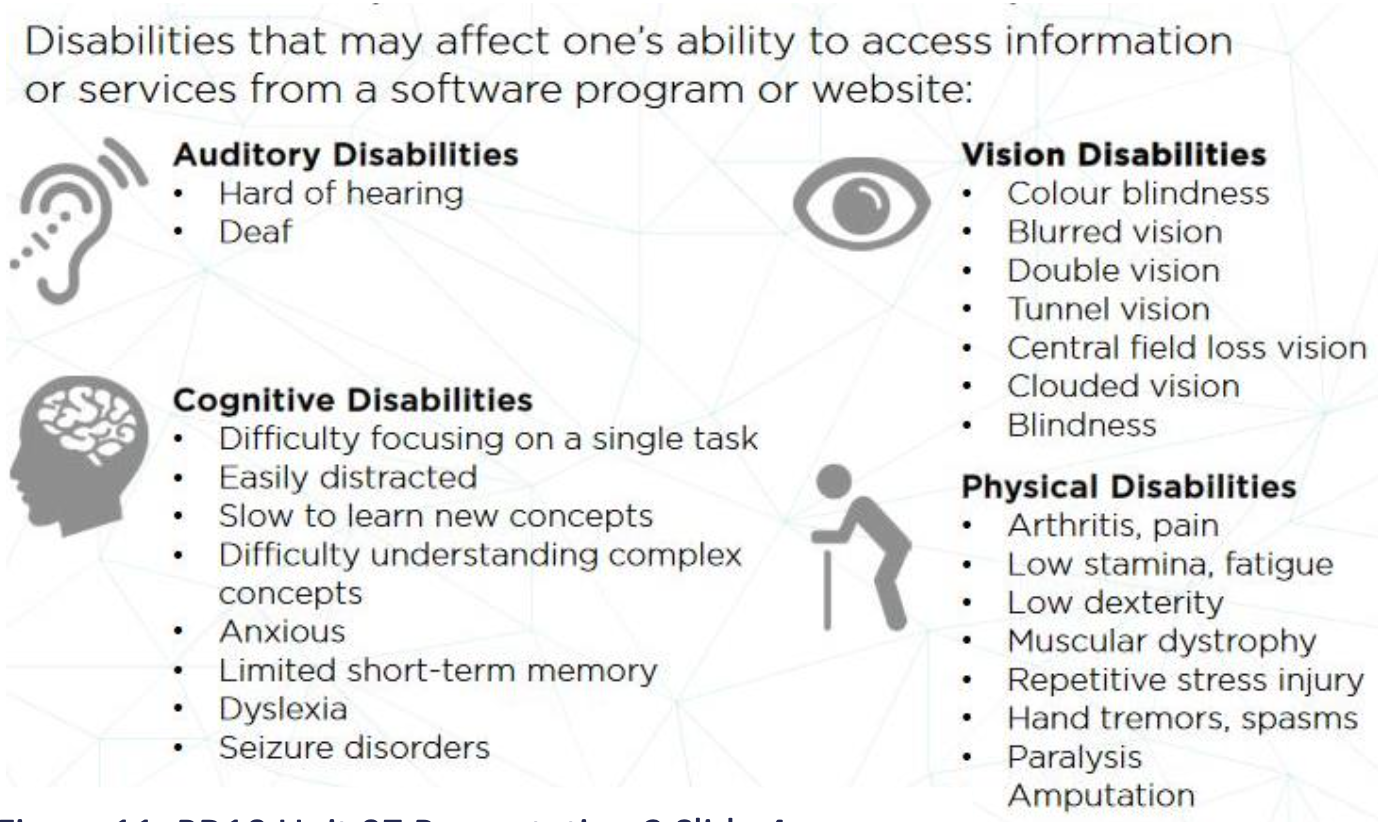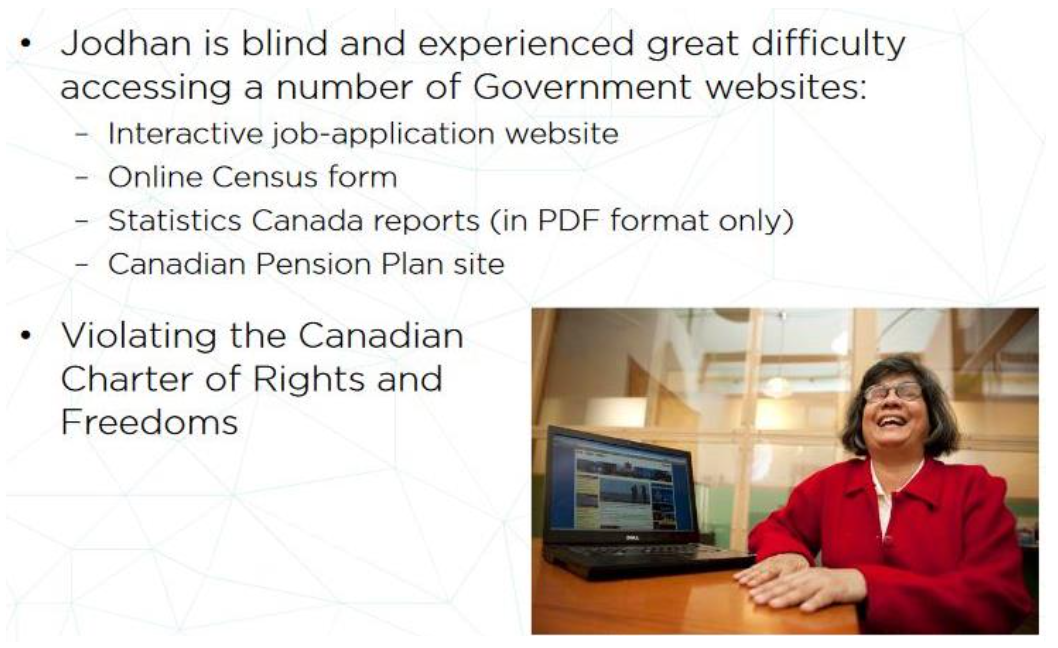Accessibility
Accessibility
Accessibility is literally the “ability to access”. It is about ensuring that all persons (regardless of their disabilities) are able to access the same goods, services, facilities, and employment opportunities as able-bodied persons.
With respect to Internet services, accessibility means that regardless of one’s abilities, a person should be able to:
- access online information, business, and services
- make reservations
- stream or download music and entertainment
- take online courses
- read news stories, reviews, and blogs
- communicate via email and social media with friends and familites
Usability vs. Accessibility
Issues of usability do relate to accessibility, but the concepts are different.
Usability is the degree to which an average user, with average abilities, finds a website or software program easy to use. Accessibility refers to whether users with disabilities are even able to navigate and/or use a website or software program.
Improving the accessibility of a program will often improve its usability, but the reverse is not true. Users with disabilities usually need special accommodation to be able to take advantage of all aspects of a website or program.
Unfortunately, unless software developers are consciously aware of the special needs of users with disabilities, they are unlikely to embed such accommodations into their websites and programs.


The judge ruled in Donna’s favour and ordered the federal government to make all of its websites - offered by 106 different departments - compliant with the Charter of Rights within 15 months.